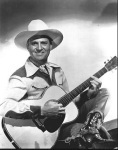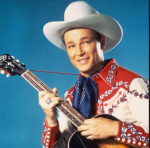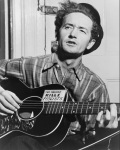Don’t Fence Me In…


Oh, give me land, lots of land under starry skies above
Don’t fence me in
Let me ride through the wide open country that I love
Don’t fence me in
When I heard Gene Autry, America’s favourite cowboy, was a 33rd degree Mason, I was disappointed. On reflection, I don’t know why I was either surprised or disappointed. They say you should never meet your heroes and, while Autry was never a hero of mine, I admired him for no apparent reason other than I’d heard him sing, ride a horse and save the girl, all in the same movie. Meeting your hero, I suppose, means knowing too much about them because they’ll always let you down. Why? Well, because they’re shorter than you thought or they’re mean to young boys and old women.
Nothing’s ever what it seems and sometimes things take on new meanings, too. Like that song, Don’t Fence Me In that Cole Porter bought from highway engineer and poet, Robert Fletcher for $250 in 1932. The song was commissioned as a cowboy song for a movie called Adios, Argentina, that was never made.
It got its first public airing in another movie, Hollywood Canteen, in 1944, when it was sung by Roy Rogers. Back then, it was just a simple cowboy song. But for others, it meant much more than that. Robert Fletcher, who wrote the lyrics of ‘Don’t Fence Me In’, later went on to chronicle much of Montana’s history for the State tourism agency and in the ’50s, he was invited to write a history of the cattle industry in Montana by the Montana Cattlemen’s Association. It was called Free Grass to Fences.
That’s a title that was as meaningful as ‘Don’t Fence Me In‘, when you consider Montana’s cattle barons were as involved in the Johnson County war of 1884, unleashing an army of hired vigilantes on homesteaders to exert their control of grazing rights and the open range.
The song was recorded by many artists, including Bing Crosby and The Andrews Sisters, ex Talking Head, David Byrne and even Apu, from The Simpsons. But perhaps its most ironic use was by an East Berlin radio station, Ops, who broadcast it nightly as their theme tune, directed at American GIs stationed in West Berlin, shortly after the erection of the Berlin Wall.
It’s not the first time, either, that a popular song has been misinterpreted or misappropriated, or both.
Two classic examples of such songs spring to mind, Woody Guthrie’s This Land is Your Land and Bruce Springsteen’s Born in the USA.


Guthrie was a folk singer and labour activist in Depression era America and wrote the song in 1940 because he was tired of hearing Kate Smith sing Irving Berlin’s ‘God Bless America’ every night, on the radio. The song has since become one of America’s favourite and best known folk songs.
It was first recorded in 1944 by Moses Asch of Folkways records and became a hit for The Weavers. Their version excluded two of Guthrie’s original verses that, if recorded then, might’ve carved a completely different history for the song and its author.
Guthrie, a vocal opponent of corporate America, titled the song, God blessed America For Me and one of those verses addressed the restriction of freedom imposed by private property.
Was a high wall there that tried to stop me
A sign was painted said: Private Property,
But on the back side it didn’t say nothing —
[This land was made for you and me.]
In another verse, Guthrie comments bitterly on the Depression era destitution of working class people,
One bright sunny morning in the shadow of the steeple
By the Relief Office I saw my people —
As they stood hungry, I stood there wondering if
[This land was made for you and me.]
Then there’s Bruce Springsteen’s Born in the USA, itself a damning indictment of the treatment meted out to post Vietnam war veterans, who felt ostracized, abandoned and betrayed, returning home, from a war they never wanted, to unemployment and being ostracized in their own country by the same Government that sent them to fight in the first place.
“Born in the U.S.A.”Springsteen said, ” is about “a working-class man” [in the midst of a] “spiritual crisis, in which man is left lost…It’s like he has nothing left to tie him into society anymore. He’s isolated from the government. Isolated from his family…to the point where nothing makes sense.”
Analysts of the time thought Springsteen’s song echoed blue collar sentiments of the day but others contrasted the song’s upbeat chorus to the downbeat and damning lyrics.
Born down in a dead mans town
The first kick I took was when I hit the ground
End up like a dog that’s been beat too much
Till you spend half your life just covering up
The album, Born in the USA, was released in 1984 and became an instant hit. That same year, Ronald Reagan’s campaign staff made overtures to Springsteen to use the song in the President’s re-election campaign. Needless to say, Springsteen declined.



Postcard from a Pigeon
- Dermott Hayes's profile
- 4 followers



